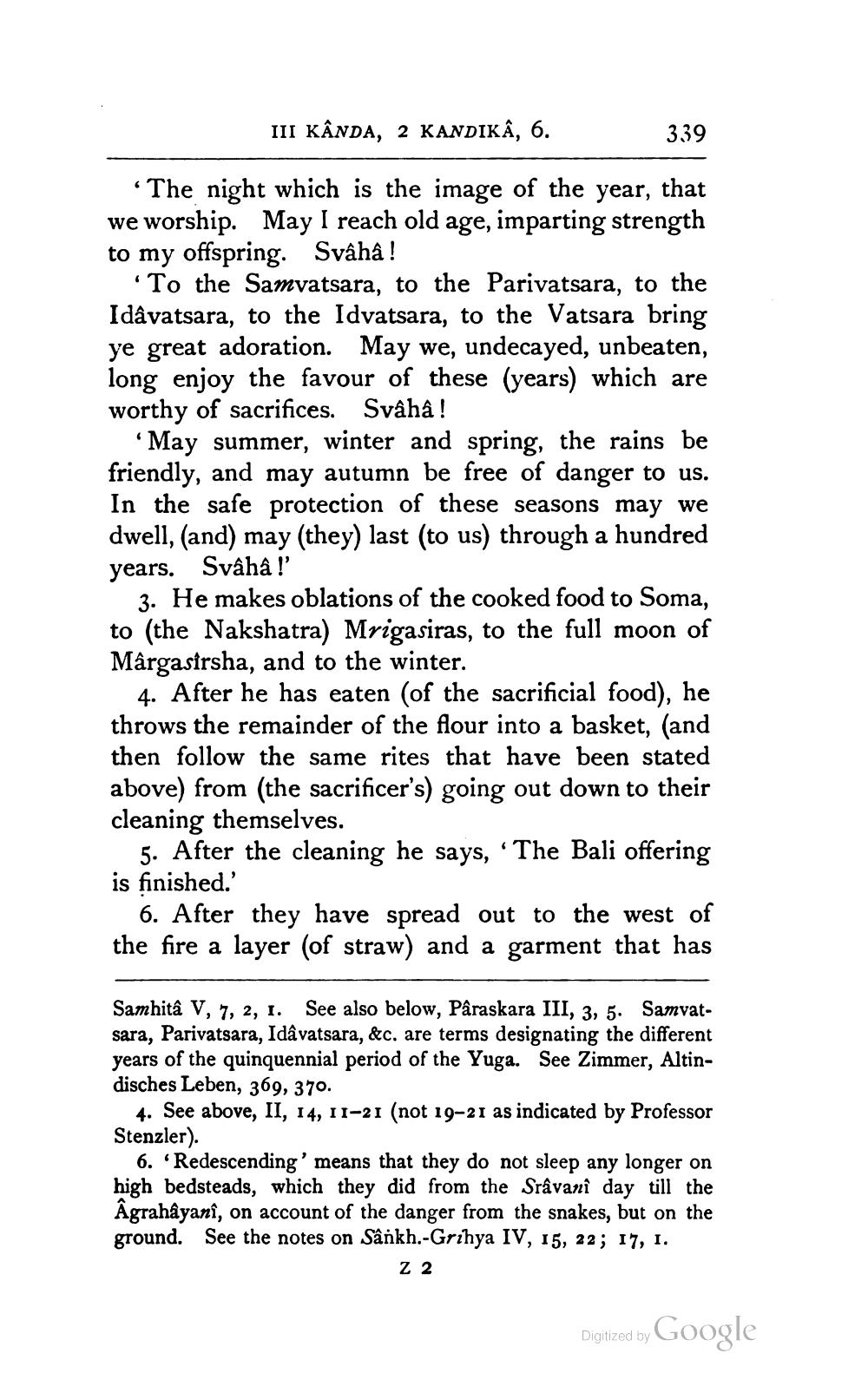________________
III KÂNDA, 2 KANDIKA, 6.
'The night which is the image of the year, that we worship. May I reach old age, imparting strength to my offspring. Svâhâ!
'To the Samvatsara, to the Parivatsara, to the Idâvatsara, to the Idvatsara, to the Vatsara bring ye great adoration. May we, undecayed, unbeaten, long enjoy the favour of these (years) which are worthy of sacrifices. Svâhâ!
339
'May summer, winter and spring, the rains be friendly, and may autumn be free of danger to us. In the safe protection of these seasons may we dwell, (and) may (they) last (to us) through a hundred years. Svâhâ!'
3. He makes oblations of the cooked food to Soma, to (the Nakshatra) Mrigasiras, to the full moon of Mârgasirsha, and to the winter.
4. After he has eaten (of the sacrificial food), he throws the remainder of the flour into a basket, (and then follow the same rites that have been stated above) from (the sacrificer's) going out down to their cleaning themselves.
5. After the cleaning he says, 'The Bali offering is finished.'
6. After they have spread out to the west of the fire a layer (of straw) and a garment that has
Samhitâ V, 7, 2, 1. See also below, Pâraskara III, 3, 5. Samvatsara, Parivatsara, Idâvatsara, &c. are terms designating the different years of the quinquennial period of the Yuga. See Zimmer, Altindisches Leben, 369, 370.
4. See above, II, 14, 11-21 (not 19-21 as indicated by Professor Stenzler).
6. 'Redescending' means that they do not sleep any longer on high bedsteads, which they did from the Srâvanî day till the Âgrahâyanî, on account of the danger from the snakes, but on the ground. See the notes on Sânkh.-Grihya IV, 15, 22; 17, I.
Z 2
Digitized by Google




